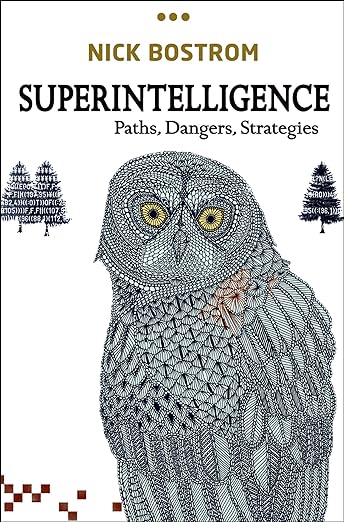
In “Superintelligence: Paths, Dangers, Strategies,” Nick Bostrom doesn’t just open the door to the future; he throws it wide open, inviting us into a world where artificial intelligence (AI) transcends human intellect. This book isn’t just a read; it’s an expedition into the realms of AI, where Bostrom, a philosopher at Oxford University, serves as both guide and visionary.
From the very first page, Bostrom captivates with a blend of profound insights, scholarly research, and a narrative style that is as engaging as it is enlightening. He meticulously constructs a scenario where ‘superintelligence’ — a form of AI superior to the best human brains in practically every field — is not a matter of ‘if’ but ‘when.’ But this isn’t your typical science fiction fare. Bostrom’s approach is rigorously academic, yet remarkably accessible, making complex ideas palpable to the lay reader.
What sets this book apart is its balanced view. Bostrom isn’t just a doomsayer warning us about AI run amok, nor is he a starry-eyed optimist. He navigates the middle path, presenting superintelligence as a double-edged sword. On one hand, it has the potential to solve some of humanity’s most daunting problems, from poverty to disease. On the other, it could lead to scenarios where humanity is no longer in control of its own destiny.
Bostrom’s exploration of the ethical and existential questions surrounding AI is both thrilling and chilling. He doesn’t just ask what it means for a machine to be intelligent; he probes deeper, asking what it means to be human in an era where our intelligence may no longer be unique or even superior. The book is peppered with thought experiments and scenarios that are as intellectually stimulating as they are entertaining.
Perhaps the most compelling part of “Superintelligence” is its refusal to offer easy answers. Bostrom doesn’t shy away from the complexities and uncertainties inherent in AI development. Instead, he presents a multitude of paths and strategies, leaving us to ponder the implications and our role in shaping a future where AI plays a central part.
In conclusion, “Superintelligence: Paths, Dangers, Strategies” is a seminal work that challenges, educates, and enthralls. It’s a must-read for anyone interested in the future of AI, ethics, and humanity itself. Bostrom doesn’t just paint a picture of what the future might hold; he invites us to actively consider our role in it. And after turning the last page, you’ll likely find yourself looking at the world, and the technology in it, in a completely new light.
Amazon link –> https://amzn.to/3UcaKOt